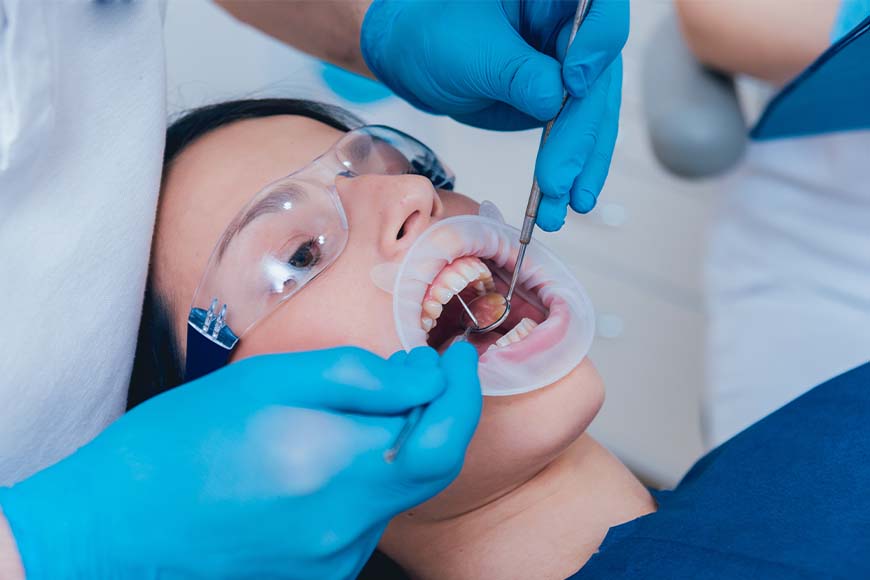Root canal therapy is a common and effective procedure used to save a tooth that is severely damaged or infected. Despite its high success rate and significant benefits, understanding the potential root canal treatment side effects is crucial for anyone considering this procedure. This article provides a comprehensive overview of what you might experience post-treatment, ensuring you’re well-prepared and informed.
Common Side Effects of Root Canal Therapy
- Pain and Discomfort
Experiencing pain after a root canal is normal. The procedure involves removing the infected tissue inside the tooth, which can lead to inflammation and sensitivity in the surrounding area. This discomfort usually subsides within a few days. Over-the-counter pain relievers, such as ibuprofen or acetaminophen, are typically effective in managing this pain. If the discomfort persists beyond a week or worsens, it’s essential to contact your dentist.
- Swelling
Swelling is another common side effect following a root canal. It occurs as the body responds to the treatment and the removal of infected tissue. Swelling generally peaks within the first 48 hours and gradually decreases. Applying a cold compress to the outside of the face near the treated area can help reduce swelling. If swelling continues to worsen or if it’s accompanied by severe pain, a follow-up with your dentist is recommended.
- Tenderness in the Tooth and Gums
After a root canal, you may notice tenderness in the tooth that was treated and the surrounding gums. This is due to the procedure’s impact on the area and should improve as healing progresses. Maintaining good oral hygiene and avoiding hard or sticky foods can help minimize this tenderness. Using a soft-bristled toothbrush and gentle brushing techniques can also aid in the healing process.
- Mild Bleeding
Some patients may experience mild bleeding around the treated tooth, especially if the root canal involves significant manipulation of the tissue. This bleeding is usually minor and should resolve within a day or two. If the bleeding is substantial or continues, contact your dental care provider for further evaluation.
- Post-Treatment Sensitivity
It’s normal to experience some sensitivity to hot and cold temperatures in the treated tooth, especially within the first few days after the procedure. This sensitivity typically diminishes as the tooth heals. Avoiding extreme temperatures in foods and beverages can help reduce discomfort during this period.
Rare but Serious Side Effects
While most side effects are manageable and temporary, some rare but serious complications may arise. These include:
- Infection
In some cases, an infection can persist or recur even after a root canal. This may be due to an incomplete removal of infected tissue or new infection. Symptoms such as severe pain, prolonged swelling, or fever should prompt immediate consultation with your dentist.
- Tooth Fracture
The treated tooth might become more susceptible to fractures, particularly if it has been significantly weakened by decay or the procedure itself. To prevent this, a crown is often recommended to restore the tooth’s strength and function. If you notice any signs of cracking or pain while biting, contact your dentist promptly.
- Allergic Reactions
Although rare, allergic reactions to medications used during or after the procedure can occur. Be sure to inform your dentist of any known allergies or adverse reactions to medications to minimize this risk.
What to Do if You Experience Side Effects
If you experience any of the common or rare side effects mentioned above, following these steps can help:
- Monitor Symptoms: Keep track of the type and duration of symptoms.
- Use Over-the-Counter Pain Relief: Manage mild pain and discomfort with appropriate medications.
- Apply Cold Compresses: Reduce swelling with cold compresses as needed.
- Maintain Good Oral Hygiene: Brush gently and floss daily to support healing.
- Contact Your Dentist: If symptoms persist, worsen, or if you experience severe pain or swelling, reach out to your dentist for an evaluation and appropriate intervention.
Key Takeaways on Side Effects and Recovery
Understanding the potential side effects of root canal treatment helps in managing expectations and preparing for a smooth recovery. While most side effects are temporary and manageable, remaining vigilant and in contact with your dental care provider ensures any issues are promptly addressed.
Schedule Your Root Canal with Confidence at Madison Dentistry & Implant Center
If you’re considering a root canal or need expert dental care, Madison Dentistry & Implant Center is here to assist. Our experienced team offers comprehensive evaluations and personalized treatments to ensure your comfort and successful recovery. Contact us today to schedule your consultation and learn more about how we can support your dental health. Visit Madison Dentistry & Implant Center or call us at 973-822-8003 to book your appointment.




